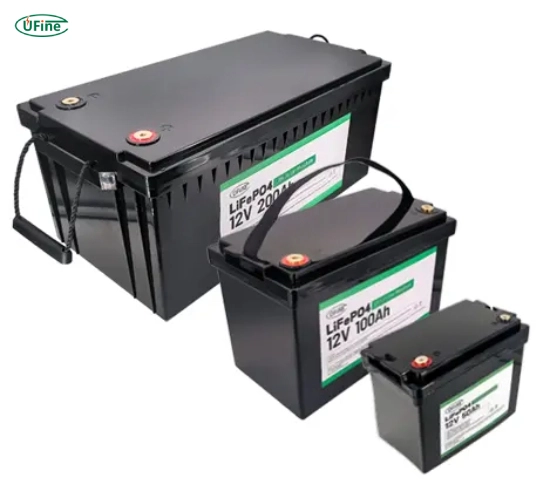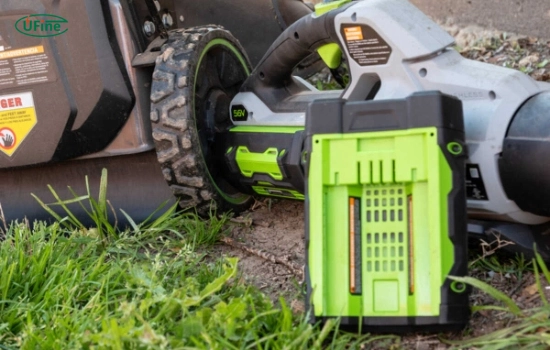
- Part 1. What is a lawn mower battery?
- Part 2. Types of lawn mower batteries
- Part 3. How long do lawn mower batteries last?
- Part 4. How does a lawn mower battery work?
- Part 5. How to choose the right lawn mower battery?
- Part 6. How to maintain your lawn mower battery?
- Part 7. Troubleshooting common lawn mower battery issues
- Part 8. Can I replace my lawn mower battery myself?
- Part 9. FAQs
The lawn mower battery is vital for any electric or battery-operated mower, providing the necessary power to keep your lawn pristine. Understanding the intricacies of lawn mower batteries can significantly enhance your mowing experience and ensure your equipment operates efficiently. This guide will delve into the various aspects of lawn mower batteries, including their types, maintenance, and troubleshooting tips.
Part 1. What is a lawn mower battery?
A lawn mower battery is the heart of electric and battery-operated mowers, supplying the energy required to power the motor and blades. Unlike traditional gas mowers that rely on fuel combustion, electric mowers depend entirely on batteries for operation. This shift towards battery-powered tools has made lawn care more environmentally friendly and convenient.
Part 2. Types of lawn mower batteries
When it comes to selecting a lawn mower battery, there are several types to consider, each with unique characteristics that cater to different needs:
- Lead-Acid Batteries: These are the most commonly used batteries in lawn mowers. They are affordable and reliable but tend to be heavier than other options. Lead-acid batteries come in two main varieties: flooded lead-acid (FLA) and sealed lead-acid (SLA). FLA batteries require regular maintenance, such as checking water levels. In contrast, you can mount SLA batteries in any position without needing maintenance.
- Lithium-Ion Batteries: Lithium-ion batteries, known for their lightweight design and longer lifespan, have gained popularity and are often used to power modern electric mowers. These batteries typically consist of lithium cobalt oxide (LiCoO2) or lithium iron phosphate (LiFePO4), which provide high energy density and efficiency. A standard model is the 40V lithium-ion battery, which offers excellent performance for residential mowers. Lithium-ion batteries charge quickly—often within an hour—and can last up to 10 years with proper care.
- Nickel-Cadmium (NiCd) Batteries: Although less common today due to environmental concerns and the advent of better technologies, NiCd batteries still offer good performance for specific applications. They can handle extreme temperatures but suffer from memory effect issues, which can reduce their overall capacity over time.
Part 3. How long do lawn mower batteries last?
The lifespan of a lawn mower battery varies based on its type and usage:
- Lead-Acid Batteries: Typically last around 3-5 years with proper maintenance.
- Lithium-Ion Batteries: Generally have a longer lifespan of approximately 5-10 years due to their advanced technology.
- NiCd Batteries: Usually last about 2-5 years but may require more frequent replacement due to memory effect issues.
Part 4. How does a lawn mower battery work?
Lawn mower batteries store electrical energy and convert it into mechanical energy to power the motor. When the mower is started, the battery sends a current to the motor, allowing it to turn the blades and cut grass.
The charging process typically involves plugging the mower into an electrical outlet or using a dedicated charger for removable batteries. During charging, electrical energy replenishes the stored energy within the battery cells.
Part 5. How to choose the right lawn mower battery?
Selecting the right lawn mower battery involves considering several factors:
- Compatibility: Ensure your chosen battery is compatible with your specific mower model.
- Voltage: Check the voltage requirements of your mower; common voltages include 12V, 24V, and 36V.
- Capacity: The battery’s amp-hour (Ah) rating indicates how long it can run before recharging.
- Weight: Consider the weight of the battery if you need to remove it frequently for charging or maintenance.
Part 6. How to maintain your lawn mower battery?
Proper maintenance can extend the life of your lawn mower battery significantly. Here are some essential tips:
- Regular Charging: Always charge your battery after use to prevent deep discharging, which can damage it over time.
- Clean Terminals: To keep the battery terminals clean and free from corrosion, use a mixture of baking soda and water.
- Store Properly: If you plan on storing your mower for an extended period, ensure the battery is fully charged and store it in a cool, dry place.
- Check Water Levels: Regularly check and top off water levels with distilled water if necessary for lead-acid batteries.
Part 7. Troubleshooting common lawn mower battery issues
You may need help with your lawn mower battery even with proper maintenance. Here are common problems and their solutions:
- Battery Won’t Charge? Check if the charger functions correctly and ensure all connections are secure. If problems persist, consider replacing the charger or consulting a professional.
- Short Run Time? If your mower runs only briefly before needing a recharge, it might mean the battery’s capacity has diminished, or you haven’t fully charged it.
- Corroded Terminals? Clean corroded terminals immediately using a wire brush or baking soda solution to ensure proper electrical contact.
Part 8. Can I replace my lawn mower battery myself?
Replacing your lawn mower battery is usually straightforward if you follow these detailed steps:
1. Safety First: Ensure your mower is turned off and unplugged from any power source before starting work.
2. Remove Covers or Panels: Depending on your model, you may need to remove any protective covers or panels that shield the battery compartment. This may involve unscrewing screws or unclipping plastic tabs.
3. Disconnecting Old Battery:
- Identify the positive (+) and negative (-) terminals.
- Carefully disconnect the negative terminal first using an appropriate wrench or pliers.
- Next, disconnect the positive terminal.
- Remove any mounting brackets holding the old battery in place before lifting it out.
4. Installing New Battery:
- Place the new battery into position.
- Connect the positive terminal first by securing it tightly.
- Follow with connecting the negative terminal.
- Ensure all connections are snug, but avoid over-tightening, which could damage terminals.
5. Reassemble the Mower: Replace any covers or panels removed during disassembly before testing your mower’s functionality.
6. Test Your Mower: Once you reassemble everything, turn it on to ensure it operates smoothly with the new power source.
Part 9. FAQs
-
What should I do if my lawn mower won’t start?
If your lawn mower won’t start, ensure the battery is charged and properly connected. Also, inspect for loose wires or corroded terminals. -
How often should I replace my lawn mower battery?
Most batteries should be replaced every 3-5 years, depending on usage and maintenance practices. -
Can I use my lawn mower in wet conditions?
It’s best to avoid using electric mowers in wet conditions, as moisture can damage electrical components and pose safety risks. -
Is it safe to leave my lawn mower plugged in all night?
Leaving your lawn mower plugged in overnight can be safe if you use an automatic charger to prevent overcharging; however, always follow manufacturer guidelines. -
What is deep discharging?
Deep discharging happens when you drain a battery below its recommended voltage level, which can cause permanent damage and reduce its lifespan.
Related Tags:
More Articles

What are Watts and Watt Hours in Battery?
Understand watt vs watt-hour in batteries, how to calculate battery watt hours, and what Wh means for car batteries, devices, and energy storage.
A Complete Guide to the Best Batteries for Flashlights
Compare the best batteries for flashlights, including AA, AAA, 18650, 21700, CR123A. See which battery offers the best brightness, runtime, and reliability.
How Long Do Rechargeable AA Batteries Last?
How long do rechargeable AA batteries last? Compare NiMH and lithium AA lifespan, recharge cycles, key factors, and performance vs alkaline batteries.
How Much Current Can a 9V Battery Really Supply?
Discover how many amps a 9V battery can supply, its actual current output, discharge rate, and capacity for alkaline, lithium, and rechargeable 9V batteries.
12V STD vs 12V AGM: Meaning, Differences, and Which Is Better
Understand what STD and AGM batteries mean, their key differences, and which 12V battery fits your needs best in 2026.





